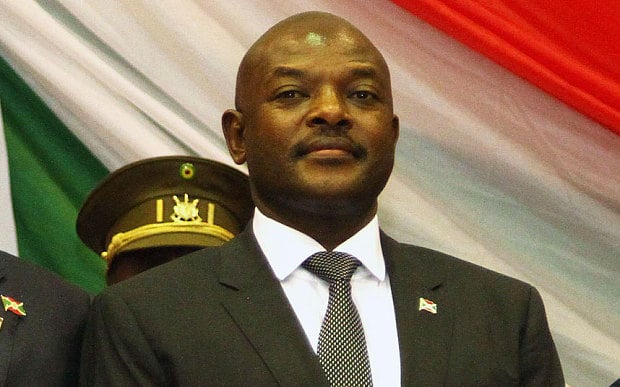The Republic of Burundi on Wednesday, January 17, 2018 deposited its instruments of ratification of the Paris Agreement on Climate Change, making the East Africa nation the 174th Party to the global treaty.

According to the United Nations Framework Convention on Climate Change (UNFCCC), Burundi’s ratification will come into force on February 16, 2018.
Previously, Macedonia (173rd), Montenegro (172nd), DR Congo (171st), Syria (170th), Nicaragua (169th), Switzerland (168th), the Czech Republic (167th), Dominican Republic (166th) and Cape Verde (165th) had deposited their instruments of ratification of the Paris Agreement on Climate Change.
Before this, Liechtenstein (164th), Ecuador (163rd), Myanmar (162nd) and Bhutan (161st), had also ratified the treaty.
The Paris Agreement was adopted on December 12, 2015 at the 21st session of the Conference of the Parties (COP21) to the United Nations Framework Convention on Climate Change (UNFCCC) held in Paris, France from November 30 to December 13, 2015.
On December 12, 2017 governments and representatives from all over the world gathered in Paris at the instance of French President, Emmanuel Macron, to celebrate the two-year anniversary of the Paris Agreement at the One Planet Summit. The Summit presented an opportunity to reaffirm global climate commitments to combat climate change and to emphasise the transition from negotiation to implementation of the Paris Agreement.
The Paris Agreement entered into force on November 4, 2016, 30 days after the date on which at least 55 Parties to the Convention accounting in total for at least an estimated 55% of the total global greenhouse gas (GHG) emissions have deposited their instruments of ratification, acceptance, approval or accession with the Depositary.
The Paris Agreement builds upon the Convention (UNFCCC) and – for the first time – brings all nations into a common cause to undertake ambitious efforts to combat climate change and adapt to its effects, with enhanced support to assist developing countries to do so. As such, it charts a new course in the global climate effort.
The Paris Agreement’s central aim is to strengthen the global response to the threat of climate change by keeping a global temperature rise this century well below 2 degrees Celsius above pre-industrial levels and to pursue efforts to limit the temperature increase even further to 1.5 degrees Celsius.
Additionally, the agreement aims to strengthen the ability of countries to deal with the impacts of climate change. To reach these ambitious goals, appropriate financial flows, a new technology framework and an enhanced capacity building framework will be put in place, thus supporting action by developing countries and the most vulnerable countries, in line with their own national objectives. The Agreement also provides for enhanced transparency of action and support through a more robust transparency framework.
